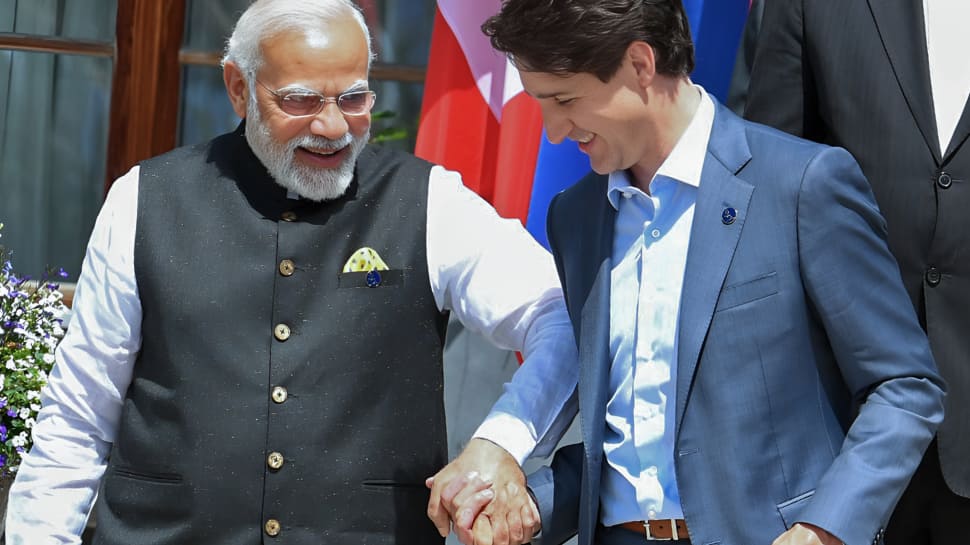India-Canada Diplomatic Row: A Deepening Crisis
The diplomatic relationship between India and Canada has reached a boiling point, marked by escalating tensions following the alleged assassination of Khalistani separatist Hardeep Singh Nijjar. Canadian Prime Minister Justin Trudeau’s recent discussions with UK Prime Minister Keir Starmer highlight the gravity of the situation, as both leaders navigate the implications of this international incident. The diplomatic spat has led to significant retaliatory actions, including the withdrawal of Indian diplomats from Ottawa and the expulsion of six Canadian officials from New Delhi.
The Allegations and Their Fallout
The controversy ignited when Prime Minister Trudeau addressed the Canadian Parliament, alleging the "potential involvement" of Indian government agents in Nijjar’s killing. This assertion has not only strained relations but has also prompted Canada to implicate several Indian High Commissioners and diplomats in its investigation. In response, India has vehemently denied these claims, asserting that the Trudeau government has failed to provide any credible evidence to support its allegations.
The Ministry of External Affairs (MEA) in India expressed its concerns regarding the safety of its diplomats in Canada, stating, “In an atmosphere of extremism and violence, the Trudeau Government’s actions endangered their safety.” This prompted India to withdraw its High Commissioner and other targeted diplomats, reflecting a significant escalation in diplomatic tensions.
Trudeau’s Response and International Support
In a statement from the Canadian Prime Minister’s Office, Trudeau characterized the situation as a "targeted campaign against Canadian citizens by agents linked to the Government of India." This assertion underscores the Canadian government’s commitment to protecting its citizens and highlights the seriousness with which it views the allegations against India.
During his conversation with Prime Minister Starmer, Trudeau emphasized the importance of international collaboration in addressing the situation. The two leaders agreed to maintain close communication as developments unfold, signaling a united front among Western allies in the face of alleged foreign interference.
India’s Stance: A Rejection of Allegations
The Indian government has responded to the accusations with strong rhetoric. The MEA’s statement condemned Trudeau’s claims as "preposterous" and suggested that they stem from a political agenda focused on "vote bank politics." This characterization of Trudeau’s motives indicates a deep-seated mistrust between the two nations, further complicating diplomatic efforts.
Moreover, India’s assertion that Trudeau’s government has long harbored hostility toward India adds another layer of complexity to the diplomatic row. The MEA’s comments reflect a broader concern about the implications of such allegations on India’s international standing and its relations with other countries.
The Upcoming Meeting: A Glimmer of Hope?
Despite the escalating tensions, there is a potential avenue for dialogue. Trudeau highlighted the significance of an upcoming meeting between the national security advisors of Canada and India, scheduled to take place in Singapore. He expressed hope that this meeting would be taken seriously by both parties, indicating a willingness to engage in discussions aimed at de-escalating the situation.
Trudeau’s recent interaction with Indian Prime Minister Narendra Modi, where he underscored the importance of the upcoming meeting, suggests that both leaders recognize the need for dialogue, even amidst rising tensions. The outcome of this meeting could be pivotal in determining the future trajectory of India-Canada relations.
Conclusion: A Diplomatic Crossroads
The diplomatic row between India and Canada represents a complex interplay of international relations, national security, and domestic politics. As both nations navigate this crisis, the stakes are high—not only for their bilateral relationship but also for the broader geopolitical landscape. The coming weeks will be crucial in determining whether dialogue can prevail over discord, and whether both countries can find a path forward amidst the shadows of suspicion and accusation.
As the situation unfolds, the international community will be watching closely, hoping for a resolution that prioritizes diplomacy and mutual respect over confrontation and division.
